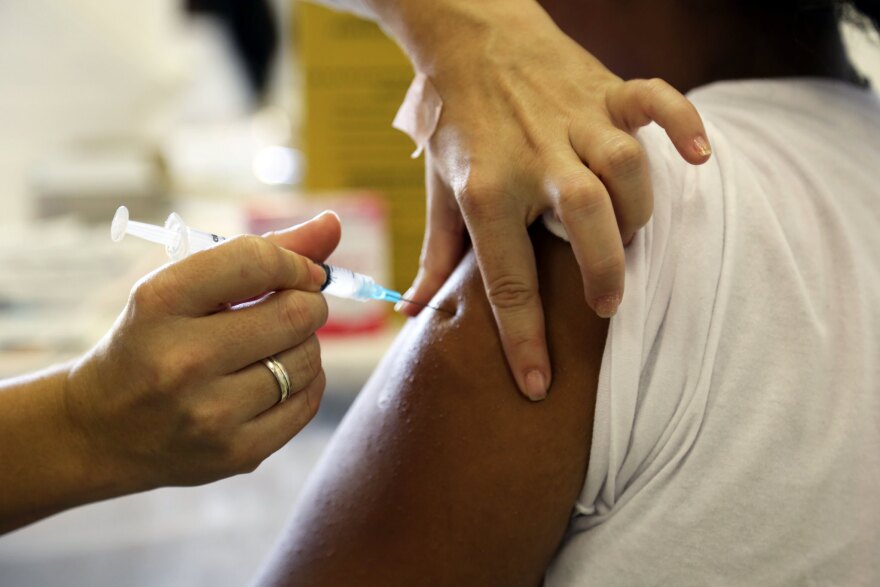Only about a third of kids in Texas are getting vaccinated against the human papillomavirus (HPV), which is linked to several cancers. The state ranks 47th in the country for its vaccination rate, according to the Texas Medical Association.
“The HPV vaccine is a cancer vaccine, and Texas must get better at using it to prevent cancer here,” Dr. David Lakey, vice chancellor for health affairs and chief medical officer with the University of Texas System, said Tuesday at a meeting in Austin.
During the meeting, officials from UT System, the American Cancer Society and the Texas Medical Association announced a public education campaign aimed at improving the vaccination rate.
Lakey said the groups’ goal is to increase the rate to “80 percent by 2026,” the 20th anniversary of the vaccine.
Jaime Wesolowski, the president and CEO of Methodist Healthcare, said he was diagnosed with stage 4 throat cancer about 11 years ago. He said his doctors were almost certain it was caused by the virus, which is sexually transmitted.
Nearly all people will get HPV at some point in their lives, but in most cases, it goes away on its own and doesn't cause any health issues. When it doesn’t go away, it can cause genital warts and several types of cancer.
The Centers for Disease Control and Prevention recommends that all 11- and 12-year-olds get two shots of the vaccine six to 12 months apart. Kids who receive their two shots less than five months apart will need a third dose.
Wesolowski said he finds it disheartening that few Texans are doing what they can to prevent their children from getting HPV.
“I am very, very proud to live in Texas,” he said. “I think we are the greatest state in the country. We do so many things so well. But I have to tell you, for this particular issue, I am ashamed.”
Public health experts say misinformation about the vaccine is the biggest driver of the low vaccination rate. The stigma associated with HPV because it is sexually transmitted has also kept rates low here.
Dr. Kimberly Avila Edwards, a pediatrician with Austin Regional Clinic, said complicating the issue is the way doctors talk to parents about the vaccine.
“We can say, ‘You need the diphtheria/tetanus/pertussis, meningitis and – if you want – the HPV vaccine,’” she said, “which is mis-messaging and misinformation.”
Avila said she tells parents about the three vaccines and then answers any questions.
“Fear is really what drives concern and I appreciate that,” she said. “Parents want the best for their children in most circumstances. And to be able to allay those fears and take those two minutes to answer those questions is invaluable.”
Wesolowski said he wants to work with Texas lawmakers to introduce legislation that would improve public education and require strong recommendations from doctors. He said he would love to see lawmakers back a mandate requiring the vaccine, but acknowledged that would be a challenge here.
“I would love to take that challenge and partner with someone [for] a mandate, because I really do believe it should be,” he said. “But I think we need to start somewhere.”
In 2007, then-Gov. Rick Perry issued an executive order mandating young girls get the HPV vaccine. Even though the order included an opt-out provision, it would have dramatically increased the number of girls in Texas receiving the shots.
The order itself seemed to come out of left field, though. Democrats and Republicans in the Legislature said at the time that they had not been consulted before the order was made and worked together to pass a law that eventually blocked it.


